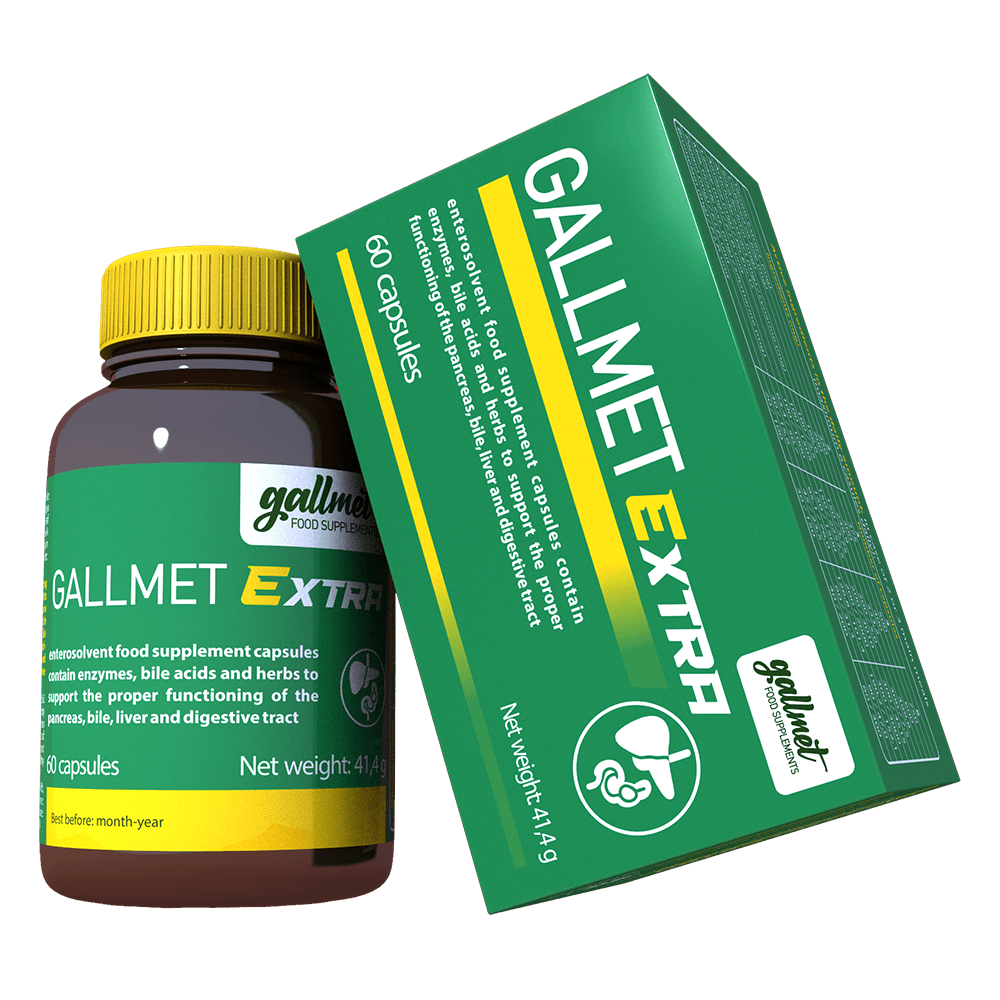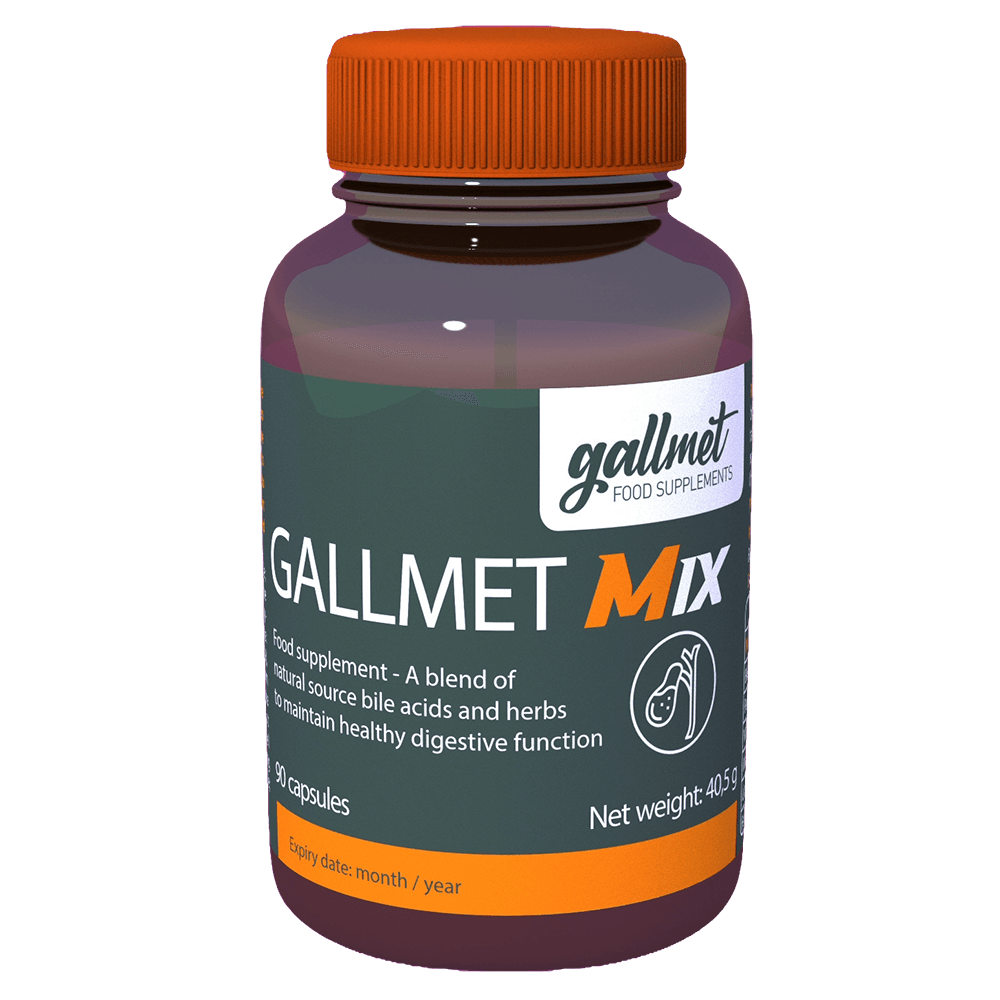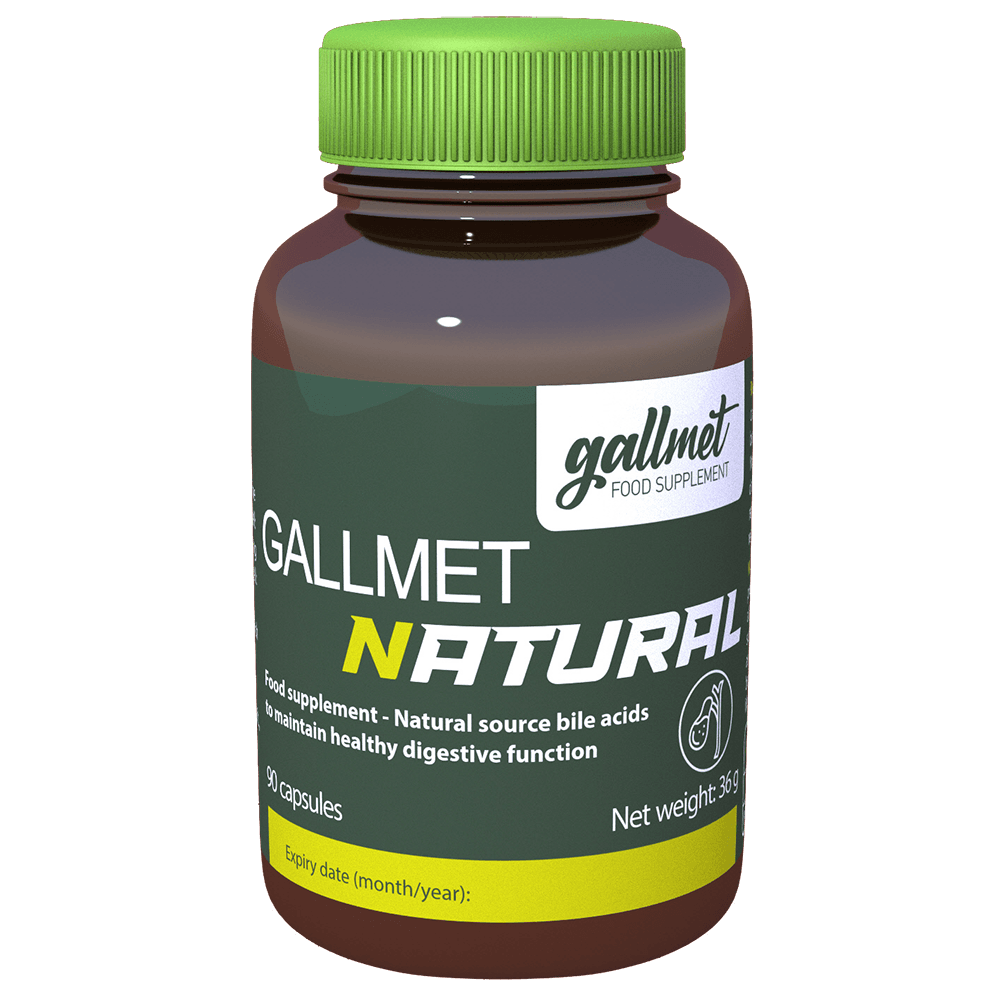Physiological effects of bile acids

(Abstracts from scientific publications and video interviews.)
1. Digestive support - breaking down fats with bile acids
'The stomach, liver, gallbladder, duodenum and pancreas interact closely with each other. Their perfectly balanced cooperation is the basis for good digestion. The sight, smell and even more so the taste of food activates saliva production, prepares the stomach and gall bladder for digestion and speeds up bile production.
'The bile acid produced is a natural soap that turns fats into tiny droplets, which are then accessible to the digestive juices, essential for digesting fat. Hence: if there is not enough bile in the duodenum with the food, the digestion of fats will be imperfect.'
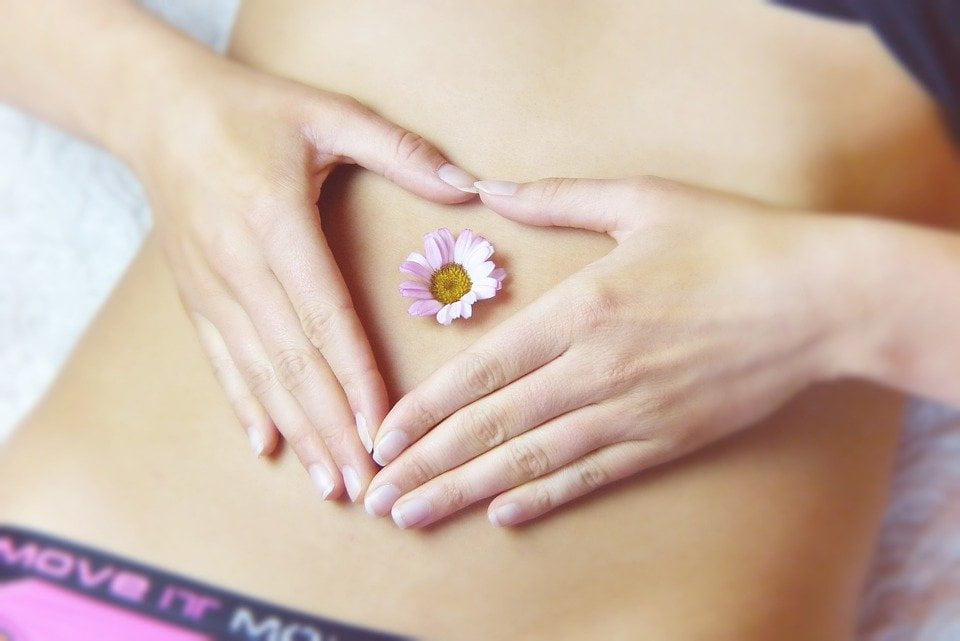
If bile production, bile secretion and bile circulation are not in balance, fat breakdown and digestion will not be balanced, and this can lead to constipation, bloating, malaise and possibly diarrhoea.' Source: Dr. István Tihanyi - Bile acids
The effect of bile acids in the intestine in allowing fat absorption via ensure the absorption of fat-soluble vitamins, and then circulating in the blood with the help of bile acids to get from the blood to the cells - the true destination of the vitamins.
A discussion with Dr. Erika Balaicza on the applications of bile acids
2. The effect of bile acids on gallstones
"The gallstone is the most common biliary disease. 15% of the EU population will be affected by this problem in their lifetime." Source: mayoclinic.org - IBS
'One of the most important elements in preventing gallstone formation is to ensure that the liver produces enough bile and that it is properly discharged and can be emptied from the gallbladder as easily as possible. Eating a nutritious, balanced diet is important. For breakfast, it is worth eating soft-boiled eggs, bacon and toast with butter, as these will help to empty the bile produced during the night.' Echo TV - Vitality
"Let us eat like kings in the morning, like citizens at noon, like beggars in the evening."
Bile contains considerable amounts of cholesterol. The solubility of cholesterol is extremely poor, but the high bile acid and lecithin content of bile allows it to be kept in a soluble form. Under abnormal conditions, the cholesterol/hepatic acid/lecithin ratio is shifted in favour of cholesterol, and cholesterol precipitates, forming gallstones.' Source: Ferenc Guba - Medical Biochemistry
'Gallstone formation occurs for several reasons:
- One reason could be to consume less than 3 litres of water a day, but at least 2 litres a day, free of carbonation, flavourings and other additives.
- 'Another reason is genetics, so it runs in families, especially in women.
- It is also common in women during pregnancy.
- It is also affected by lifestyle and diet.
- Most often, it can be caused by excessive fat consumption. So being overweight and having high cholesterol levels also predisposes people to gallstones.
- In other cases, it otherwise develops in dieters because they don't eat enough fatty, oily foods, which stimulate the gallbladder to produce enough bile.
- So overall, it's mainly genetics, poor dietary habits, liver dysfunction that is behind gallstones.' Fix TV, Sinus
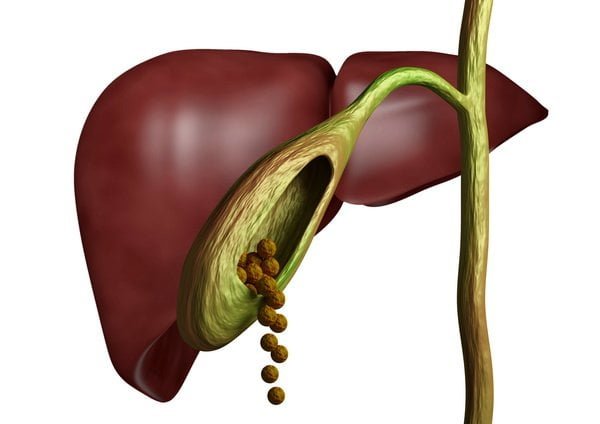
The main symptoms of gallstones:
- Dull ache under the right ribcage,
- Digestive complaints: bloating, diarrhoea or constipation, light-coloured stools, etc.
- Bile spasm, pain radiating down the back.
What can someone who has already developed gallstones do?
- Living a less stressful lifestyle can reduce the symptoms of gallstones.
- a 'fibre-rich diet' is important,
- avoiding regular alcohol consumption,
- regular meals,
- adequate fluid intake,
- avoiding too fatty - oily - spicy - smoked foods' Source: dietician Dóra Henn - Bile sparing diet
- taking capsules containing bile acids can relieve the symptoms of gallstones,
- cholesterol stones smaller than about 15 mm can be up to can be dissolved with bile acid treatment.
3. Role of bile acids in gallbladder surgery
'If the gall bladder is removed, of course its function ceases, but you can live without a gall bladder, although changed quality of life. The liver will then continue to produce bile, which is continuously excreted through the common bile ducts into the duodenum.' Source: Dr. László Tihanyi - Gall bladder removal
'As a consequence, in case of higher bile requirements (e.g. when eating higher fat foods) not enough bile for balanced digestion, as there is no gallbladder and no bile to spare for such cases. The fats are not properly emulsified, so when they enter the large intestine, the intestinal flora starts to break them down, causing increased gas formation, bloating, possibly constipation or diarrhoea.
From gall bladder removal abdominal symptoms that may follow the removal of the gallbladder are the same as before the removal of the gallbladder, such as bloating and constipation, reflux, inflammatory bowel disease etc. In the case of such a problem, we have two options, one is to use smaller portions of food and dietary foods or take a product containing bile acid before a meal.' Source: Erika Balaicza, MD Fix TV, Szinusz 2016.06.08.
4. Reducing natural cholesterol levels with bile acid
'The human body needs cholesterol, a very important cell-building element. The body cannot process fats without cholesterol.' Cholesterol is needed (Kurir 1992)
'One natural way to get rid of excess cholesterol is to excrete cholesterol by your own bile or by bile ingested from outside. About 20-30% of the excess cholesterol is converted into bile acids, while about 70% is absorbed (into the gallbladder) without being converted. So oral intake of bile acids can help to break down excess cholesterol.' Source: Dr. László Tihanyi - Cholesterol and gallstones
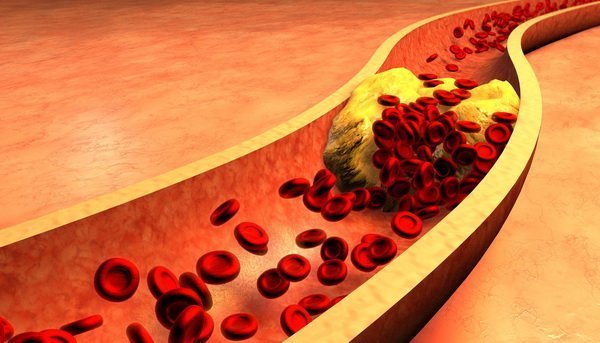
5. The bactericidal and antiviral properties of bile acid
'Bile acids can kill a group of bacteria, including those in the pharynx. Consequently, in the case of reduced gastric acid production, the normally present members of the pharyngeal flora will descend into the duodenum, and if the bile acids that spill into the duodenum do not destroy the bacteria that have descended from the upper respiratory tract and pharynx, the pathogens that enter the small intestine - where they have a putrefactive effect - will cause gas formation, bloating, wind cramps and possibly diarrhoea.' Eggs Nutrition Health (Egg Book)
'With possible impairment of liver function, bile acid production is reduced and this inhibits the digestion of fats. In addition, the fats then coat the proteins and inhibit their digestion. The undigested protein serves as a medium for intestinal bacteria and results in bacterial overgrowth.' Medical biochemistry Page 394
"Our faeces are made up of 75% water, with the remaining 25% made up of half and half of undigested fibres and dead or live bacteria. In the intestines, endotoxins (fatty toxins) are formed as the bacteria die. During this process, the accumulated endotoxin molecules are broken down by bile acids into smaller, non-toxic units, so that detoxification in the intestinal tract is largely dependent on bile acids. Max Theiler has shown that bile acids inactivate even dangerous pathogens such as yellow fever virus and play an important role in the herpes also to protect against. The neutralising effect of bile acids on endotoxins, bacteria, fungi and viruses is called physico-chemical defence." Source: Dr. István Tihanyi - Bile acids
Bile acids play a major role in immune defence by neutralising endotoxins, a term that Professor Lóránd Bertók, internationally renowned for his research in this field, aptly coined physico-chemical defences of the organism and introduced it to the international scientific vocabulary.
6. Effect of bile acids on bile reflux
Reflux is the backflow of stomach contents through the oesophagus. Reflux disease is when the reflux of stomach contents through the oesophagus leads to complaints that impair quality of life.
"In addition to a poor lifestyle (e.g. too much sedentary work) and poor eating habits (e.g. late dinners), poor bile function also causes reflux disease. This poor bile function causes a blockage in the small intestines, which prevents food from moving down the intestinal tract." Reflux
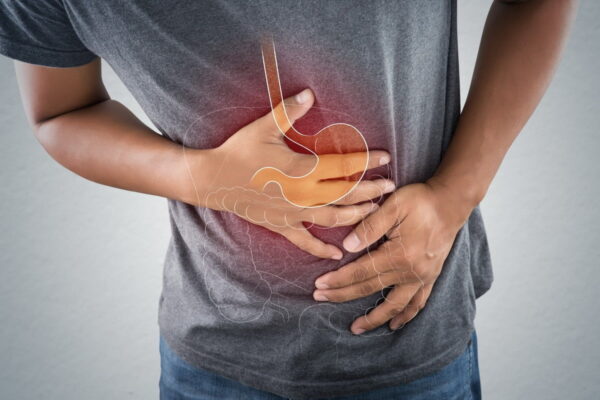
Replacing bile acids will make bile excretion more regular, and it will also stimulate the small intestine, removing the irritation and blockage that allows food to move upwards and cause reflux-like symptoms. Source. Echo TV, Vitality
7. What is the role of bile acids in relieving intestinal inflammation?
IBS - Irritable Bowel Syndrome, SIBO - Contaminated Small Intestine Syndrome, Ulcerative Colitis, Crohn's Disease
If there is a problem with the breakdown of fats, then fat digestion will occur through putrefaction, which will spoil the bacterial flora in the colon. This disruption allows previously unknown microorganisms to colonise and multiply in the intestines. This can trigger inflammatory processes that cause pain, cramps and the following intestinal inflammation
If the cycle of bile acids is not functioning properly or is damaged for whatever reason, bile acid supplementation can help to alleviate the symptoms of these diseases and speed up their resolution, as bile acids support the cycle of bile acidss, the digestion, intestinal and immune system health and are involved in alleviating its disorders.
8. Summarising the effects of bile acids
- Bile acids therefore play an extremely important role in digestion, the functioning of the digestive organs, the digestion of fats, the removal of excess cholesterol, the maintenance of health and the body's physico-chemical defences.
- 'But they can only do all these jobs well if we have a high enough fat content in our diet to empty the gall bladder in the morning and preferably again in the late afternoon. Of course, in addition to fat, a balanced intake of carbohydrates and protein must also be taken care of. In the medical literature, the recommended ratios are 50% carbohydrate, 30% protein and 20% fat.' Eggs Nutrition Health (Egg Book)
9. Main applications of bile acids:
- Digestive support
- Digestive problems in stress
- Beneficial fats for the body
- Prevention and treatment of gallstones
- Treatment of gallstones: gallstone dissolution and gallstone extraction
- Problems after gallbladder surgery
- The disposable organ we can't live without - the gallbladder
- Bile cycle: the role of bile acids in quality of life
- Biliary circulation, enterohepatic circulation lecture
- High cholesterol levels
- Inflammatory bowel diseases
- Psoriasis, psoriasis
- Diabetes
- Immune system support
- For herpes
- Overweight, weight loss
- Digestive tract candida
- Biliary reflux
- Utilisation of fat-soluble vitamins
- Treatment of infections

